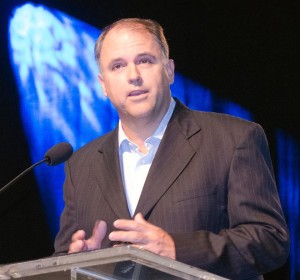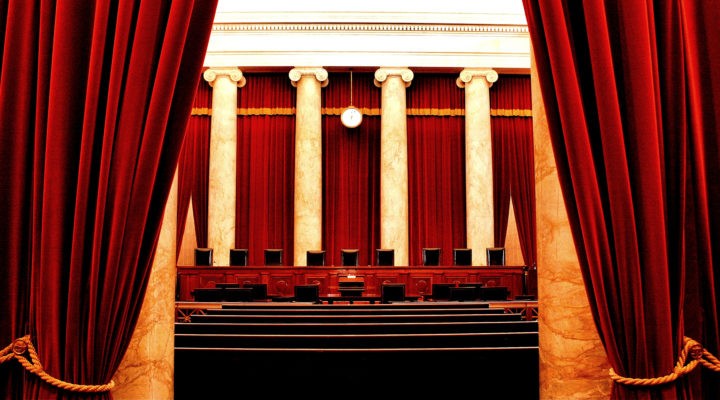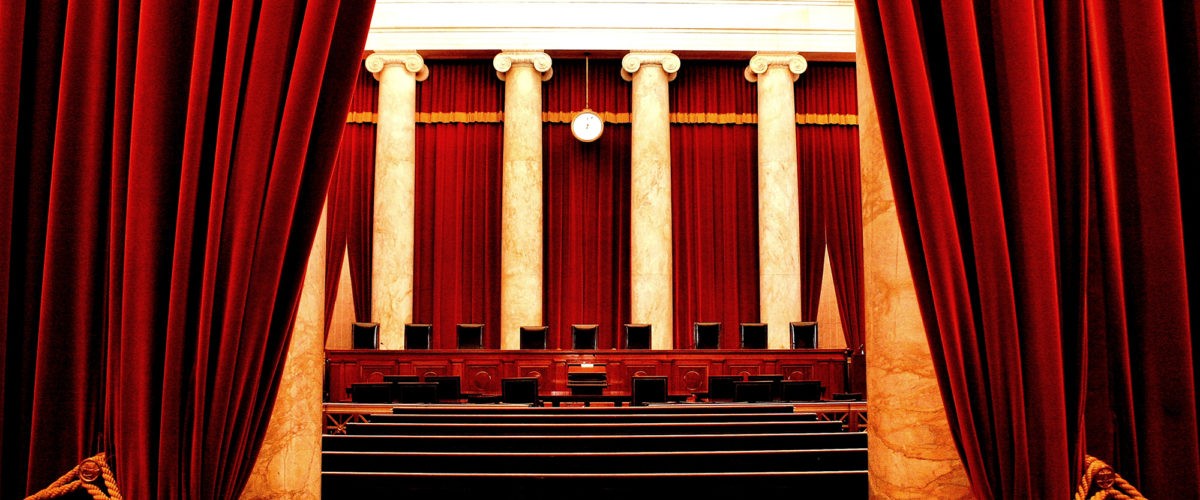A federal lawsuit that combines questions of religious liberty, defamation and the meaning of Baptist autonomy has been appealed to the United States Supreme Court.
The Southern Baptist Convention’s North American Mission Board, the defendant in the original 2017 case, on Feb. 17 filed a petition for a writ of certiorari, asking the high court to review the earlier ruling of the U.S. Court of Appeals for the Fifth Circuit. Seeking a writ of certiorari is the primary means to petition the Supreme Court to review a lower court ruling. The court typically accepts fewer than 150 of more than 7,000 cases requested for review each year.
Cases that are accepted tend to have national significance on issues that have not been previously clarified or that the court believes need new clarification.
The SBC’s North American Mission Board contends this is just such a case. It identified two questions the court could address that reach such a high standard:
- “Whether a secular court can, consistent with the First Amendment’s Religion Clauses, adjudicate a minister’s employment-related state law tort claims against a religious organization using neutral principles of tort law.”
- “Whether the First Amendment precludes the adjudication of a minister’s employment-related state law tort claims only when brought against the legal entity that was the minister’s employer.”
Buried within those two legal questions is a tangle of questions regarding religious liberty, Baptist history, Baptist autonomy, church governance and clergy employment. In fact, one of the previous lower court rulings reads as much like a textbook in Baptist history as a court document.
Buried within those two legal questions is a tangle of questions regarding religious liberty, Baptist history, Baptist autonomy, church governance and clergy employment.
What’s this all about?
At issue is the 2015 termination of Will McRaney as executive director of the Baptist Convention of Maryland and Delaware, one of 42 autonomous state and regional conventions that willingly cooperate with the SBC and its agencies.
As explained in a Feb. 18 Baptist News Global analysis piece, however, the SBC’s church planting agency, known as NAMB for short, has spent the last decade renegotiating and withdrawing from long-time partnership funding agreements with state and regional conventions like the one in Maryland-Delaware. Guided by the recommendation of an SBC special study group, NAMB has reclaimed for its own use about $51 million in annual Cooperative Program offering funds previously shared with the states.
When NAMB sought to change its relationship and funding agreement with the Maryland-Delaware convention, McRaney resisted. As time has moved on, other leaders have joined the theme of McRaney’s complaint and in fact have joined together to press their concerns about NAMB’s unilateral funding changes and perceived attempts at controlling the state conventions.

Kevin Ezell
McRaney was an early victim of this dispute between state conventions and the national SBC. His lawsuit against NAMB claims that because he resisted the changes required by NAMB — and specifically its president, Kevin Ezell — Ezell and other NAMB officials demanded his termination by the two-state convention. And he claims that demand came with a threat to withhold $1 million in annual funding if McRaney were not fired.
Further, according to court documents: “McRaney alleges that, after his termination from employment with the BCMD, NAMB leadership continued to interfere with business and contractual relationships that McRaney had with third parties.” That included McRaney being disinvited to speak at event sponsored by two other state Baptist conventions, one in Florida and one in Mississippi.
Also, according to court documents, McRaney alleges “that his photo was posted at the NAMB headquarters welcome desk with a caption that stated he was not to be trusted.”
The court rulings so far
McRaney filed suit against NAMB in May 2017. What began as a state court case in Mississippi got elevated to a federal court at the request of NAMB’s attorneys.
In April 2019, Judge Glen Davidson of the U.S. District Court Northern District of Mississippi dismissed McRaney’s lawsuit, saying the court could not consider McRaney’s claims because of a tenant known as the ecclesiastical abstention doctrine.

Will McRaney
McRaney argued on appeal that the ecclesiastical abstention doctrine did not apply. That led a three-judge panel of the Fifth Circuit Court in July 2019 to reverse the earlier dismissal, saying this case appeared to be about more than “purely ecclesiastical questions.”
In August 2020, NAMB asked for a full court hearing of the case rather than it being sent back to the District Court judge who had ruled before. That request was denied in November 2020, setting up the latest action by NAMB to involve the Supreme Court.
Meanwhile, the actual merits of the case have yet to be argued in any court. More than three years of legal wrangling through multiple courts has centered on whether the matter should be heard by a civil court.
Why this matters
NAMB is represented by First Liberty Institute, a religious-freedom law firm based in Plano, Texas. First Liberty’s list of current and past cases highlights mainly a conservative evangelical view of religious liberty, for example representing a medical professional who declined to perform services that violate his religious convictions or a school football coach who was fired for leading a time of silent prayer.
First Liberty’s executive general counsel, Hiram Sasser, has noted that the Supreme Court previously “made it clear that the Constitution protects religious organizations’ independence and their right to choose their own leaders and ministers.”
That much is not disputed by either side. What complicates McRaney’s case is that he was not an employee of NAMB. That alone, he contends, means this is not a matter of Constitutionally protected hiring by a church or religious organization.
What complicates McRaney’s case is that he was not an employee of NAMB.
The federal district court ruling explained: “While this is a dispute between members of the same religious denomination, it is not one which, on the face of the complaint, involves a review of internal policies, internal procedures, or internal decisions of the church.” Instead, McRaney’s complaint is about “external actions toward separate autonomous organizations, rather than internal decisions within the hierarchy of a single organization.”
And therein lies the rub due to Baptists’ history of and insistence on autonomous relationships. Unlike hierarchical churches — such as Roman Catholicism or the United Methodist Church, for example — Baptist polity holds that each congregation, each state convention and the national denomination itself are connected voluntarily and without an ability to coerce the other.
Therefore, McRaney’s claim that NAMB officials demanded that another autonomous body fire him or lose funding would not fall under the ecclesiastical abstention doctrine. And if that’s true, he claims, then a civil court should have jurisdiction over his defamation claim because it is not, at root, a matter of clergy employment or supervision.
This has put NAMB officials in the awkward position of defending the Baptist doctrine of autonomous relationships while also claiming the SBC agency’s leaders did nothing illegal in calling for McRaney’s ouster because he was, effectively, a clergyperson acting in a denominational role.
There’s yet another wrinkle to the legal debate, though, because of previous actions taken by the SBC Executive Committee to ensure that its agencies and institutions never break away from the national convention the way some Baptist-affiliated universities did from state Baptist conventions. Thus, over the past two decades the SBC Executive Committee has asked all the denomination’s seminaries and agencies to name the Southern Baptist Convention as “sole member” of their corporations — a legal way of saying the SBC owns all its agencies and educational institutions and can override the will of elected trustees if desired. That, critics charge, is the death knell to any claim of Baptist autonomy.
‘A bigger issue than NAMB’
These are the matters currently being litigated in the McRaney case and the reason its outcome could have ripple effects throughout Baptist life.
Another SBC agency, the Ethics and Religious Liberty Commission, got in hot water with SBC leaders when, early in the McRaney case, it joined with the Thomas More Society, in a friend of the court brief that said the SBC, NAMB and state conventions do have a hierarchical relationship. The ERLC later amended its position on that statement, but the issue continues to dog the agency’s executive director to this day.

Danny de Armas
Baptist Press reported that Danny de Armas, chairman of the NAMB board of trustees, sent a letter to SBC leaders explaining that this appeal to the Supreme Court is an attempt to get the court to “fully explore the religious liberty protections afforded all churches and ministries by the First Amendment to the U.S. Constitution.”
“This case is far bigger than NAMB or one person’s claims,” he said in the letter. “It is about protecting our churches and pastors from intrusive government interference into our polity and practices. It’s about standing up for the religious freedoms we enjoy as Americans, as followers of Jesus, as Southern Baptists, and as pastors.
“How religious organizations cooperate with local churches is a sacred right protected by the First Amendment. We just want to be able to freely share the gospel and execute our ministry strategy without interference from the government.”
McRaney, in his legal filings, says his firing was not about Constitutionally protected religious freedom but about a desire for power and control.
As summarized in one court document, McRaney “urged the court of appeals to allow him to explore, through litigation in a civil court, ‘for what reason was he now being banned by the independent churches in two various states? Had he preached false doctrine, or had he run afoul of the Southern Baptist Convention that wanted to control all of the various state organizations?’
“’In Reverend McRaney’s view, the actions taken against him ‘were done for (a) purely non-religious reason … that is control and power and retaliation against any who oppose. Let the termination … stand as an example for any other autonomous Southern Baptist church and convention who dares to stand up to the power and might of the Mission Board.’ The secular courts, in Reverend McRaney’s view, must be open to resolve such denominational power struggles.”
Related articles:
Southern Baptist polity on trial in lawsuit appeal
What’s old is new again: Conservatives threaten funding over SBC’s ethics agency


